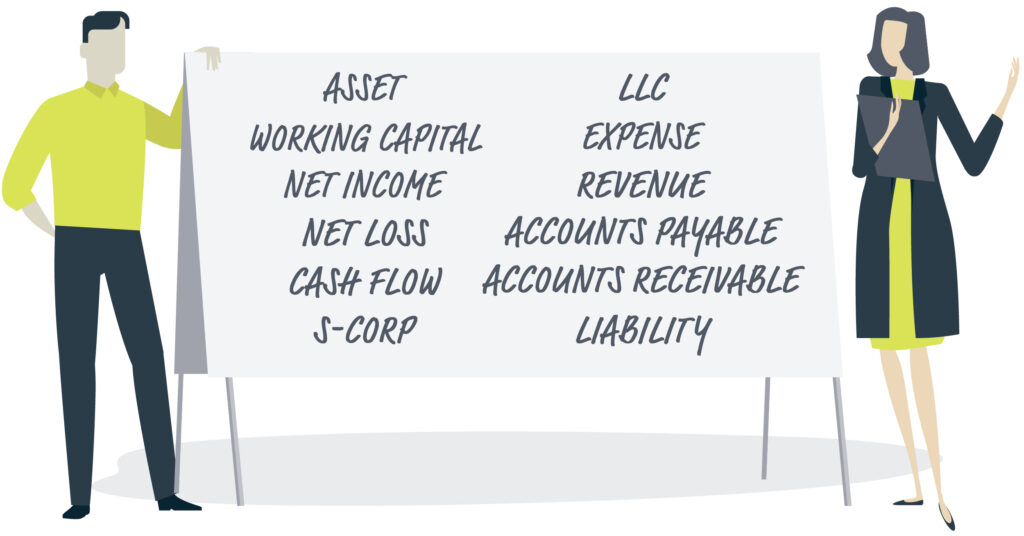
As a small business owner or manager, you may encounter many accounting terms on a day-to-day basis with which you are unfamiliar. A better understanding of some of that vocabulary can provide you with a competitive edge as you strategize with your banking and accounting partners.
Asset – Property or resource(s) owned or controlled by your business that are regarded as having positive economic value—that can be used to produce earnings today and/or in the future
Liability – Something owed or obligated by your business (usually a sum of money)
Working Capital – Items on your company’s balance sheet that can quickly be converted to cash (Calculation: current assets less current liabilities)
Accounts Payable – Money owed by your business
Accounts Receivable – Money due to your company from customers as payment for goods furnished or services rendered
Cash Flow – Net amount of cash and cash equivalents moving in and out of a business.
Revenue – Income generated by your company from its normal business operations
Expense – Cost associated with using company’s assets to produce revenues
Limited Liability Company – An entity type that has the limited liability of a corporation, while being treated like a partnership for tax purposes
S-Corporation – Tax designation that passes income through to owners, with characteristics of both a C-Corporation and a partnership
Net Income – The position of a business when its total revenues exceed its total expenses (also known as Net Profit)
Net Loss – The position of a business when its total expenses exceed its total revenue
If you are still unclear on any of these definitions or other accounting terms you may have encountered, please ask your accounting advisor for additional clarity at your next meeting!
